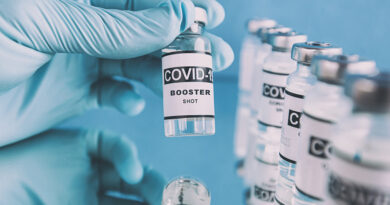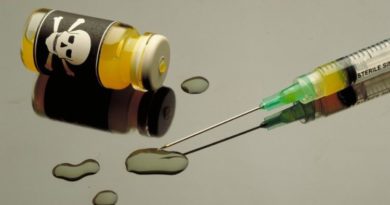Heath official addresses misinformation and conspiracy theories about COVID-19 vaccine

LANSING, Mich. (WILX) – As final approval nears for the first COVID-19 vaccine in Michigan, health professionals are begging people to take the shot.
In an Gallop poll, 42% of Americans said they would not be willing to get vaccinated. Meanwhile, 61% percent of Detroiters said they are unlikely or very unlikely to get the vaccine, according to the latest survey from the University of Michigan’s Detroit Metro Area Communities study.
The reasons why vary, but a large part has to do with history, mistrust, and misinformation.
To fight against that, past presidents like Barack Obama have vowed to take the vaccine in public.
Health professionals on the front lines trying to fight against the virus are also trying to fight against overwhelming misinformation. Mid Michigan Health Officer Marcus Cheatham is one of him.
He says the problem stems from a lack of a unified message from national leaders.
“If we can overcome this problem and have a unified message then, you know, we think we’ll be able to turn a corner here. But with the politics, the way it is, I don’t know if that’s going to happen,” said Cheatham.
Cheatham says that a large percentage of the population needs to take the vaccination to boost herd immunity in order to get rid of the virus.
“We are not sure we’re going to make it because of this vaccine resistance right now. We think we’ll easily get to 50%. We might get to 60%. We’re not sure we’ll get to 70%. If we don’t get there, it’ll keep spreading and it’ll keep killing people,” said Cheatham.
Cheatham says there’s no evidence to believe the vaccine is unsafe.
“Based on what we’ve seen in that in the clinical trials, it should be both safe and effective,” said Cheatham. “We were really gratified to see that the CDC went through all of the steps they needed to in testing. We were afraid they would cut corners and it looks like they did not,” said Cheatham.
Experts say the reason the vaccines were produced so quickly is because scientist globally prioritized a solution and there wasn’t a fight over funding.
Cheatham says the truth is all the vaccines with pending approvals were highly effective in tests. However, the vaccine may hurt when it is administered.
“If you’re old enough, you probably haven’t had the shingles shot yet. Well, it’s kind of like that one. So yeah, your arm hurts for a day afterwards and you might have a low grade fever,” said Cheatham.
He’s advising people with doubts to consider the alternative of contracting the virus without immunization could be much worse.
“If that thing saves your life and it keeps you from being in the intensive care unit with a tube down your throat, that’s a really good deal. Get the shot,” said Cheatham.
Black Americans have referred to the Tuskegee Syphilis Experiment to cite where their mistrust in government authorized immunizations come from.
Cheatham says that’s understandable.
“For people who are in any profession, that requires public trust. This is the importance of not screwing up in the first place. Because once you do you’ve lost something precious that you can’t get back. What can I say that didn’t happen? No, of course it happened. So, I think a lot of work has to be done on the part of public health and other health professionals to recapture public trust. There’s not a magic bullet,” said Cheatham.
Health Officer Cheatham says the first wave of vaccines for heath care professionals and those who work or stay in nursing homes should be completed by the end of January.
The next wave of vaccines for people over 65 and those with pre-existing conditions should be underway by February. When it’s available for the general public, it will be free and administered by your primary care doctor.
If you don’t have a doctor or are apart of the incarcerated population, the local health department will facilitate immunizations.
Copyright 2020 WILX. All rights reserved.
*** This article has been archived for your research. The original version from WILX can be found here ***


